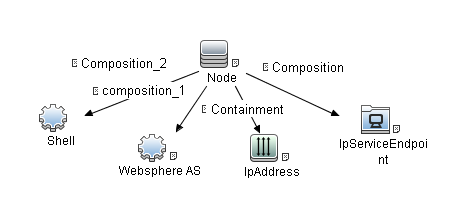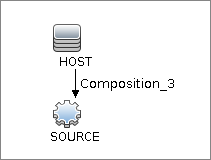Searching the Help
To search for information in the Help, type a word or phrase in the Search box. When you enter a group of words, OR is inferred. You can use Boolean operators to refine your search.
Results returned are case insensitive. However, results ranking takes case into account and assigns higher scores to case matches. Therefore, a search for "cats" followed by a search for "Cats" would return the same number of Help topics, but the order in which the topics are listed would be different.
| Search for | Example | Results |
|---|---|---|
| A single word | cat
|
Topics that contain the word "cat". You will also find its grammatical variations, such as "cats". |
|
A phrase. You can specify that the search results contain a specific phrase. |
"cat food" (quotation marks) |
Topics that contain the literal phrase "cat food" and all its grammatical variations. Without the quotation marks, the query is equivalent to specifying an OR operator, which finds topics with one of the individual words instead of the phrase. |
| Search for | Operator | Example |
|---|---|---|
|
Two or more words in the same topic |
|
|
| Either word in a topic |
|
|
| Topics that do not contain a specific word or phrase |
|
|
| Topics that contain one string and do not contain another | ^ (caret) |
cat ^ mouse
|
| A combination of search types | ( ) parentheses |
|
- WebSphere Discovery
- Overview
- Supported Versions
- How to Discover WebSphere Topology by JMX
- How to Discover WebSphere Topology by Shell
- How to Discover WebSphere Inactive Instances by Shell
- JEE Inactive WebSphere by Shell Job
- JEE TCP Ports Job
- JEE WebSphere Connections by JMX Job
- JEE WebSphere by Shell or JMX Job
- JEE WebSphere by Shell Job
- Troubleshooting and Limitations – WebSphere Discovery
JEE WebSphere by Shell Job
This section includes details about the job.

| Node Name | Condition |
|---|---|
| IpAddress | NOT IP Probe Name Is null |
| Shell | NOT Reference to the credentials dictionary entry Is null |
| IpServiceEndPoint |
IpServiceName Equal websphere_jmx OR ServiceNames Contains websphere_jmx |
Parameters are not overridden by default and use values from the adapter.
Adapter Information
This job uses the WebSphere_By_Shell adapter.
Shell
| Name | Value |
|---|---|
| Protocol | ${SOURCE.root_class} |
| credentialsId | ${SOURCE.credentials_id} |
| hostId | ${HOST.root_id} |
| ip_address | ${SOURCE.application_ip} |
| connected_os_credentials_id | ${SOURCE.connected_os_credentials_id:NA} |
-
asm_websphere_discoverer.py
- connection.py
- db.py
- db_builder.py
- db_platform.py
- entity.py
- file_ver_lib.py
- fptools.py
- iteratortools.py
- jdbc.py
- jdbc_url_parser.py
- jee.py
- jee_connection.py
-
jee_constants.py
- jee_discoverer.py
- jms.py
- jmx.py
- process.py
- process_discoverer.py
- protocol.py
- websphere.py
- websphere_by_shell.py
- websphere_discoverer.py
globalSettings.xml
None
DFM discovers the following elements:
-
The Version Number
DFM discovers the version number of the WebSphere application server from the WAS.product or BASE.product file (depending on the WebSphere version) in the <WebSphere base directory>\properties\version folder.
-
The Server Listening Port and Address
DFM retrieves information about WebSphere servers by searching for the serverindex.xml file, found either in the <WebSphere base directory>\profiles\<PROFILE>\config\cells\<CELL>\nodes\<NODE> folder, or the <WebSphere base directory>\config\cells\<CELL>\nodes\<NODE> folder.
-
J2EE Applications
DFM searches for the deployment.xml file in each <WebSphere base directory>\profiles\<PROFILE>\config\cells\<CELL>\applications folder (or in the <WebSphere base directory>\config\cells\<CELL>\nodes\<NODE>\applications folder). The deployment.xml file is located in every installed application folder, and contains information about application targets.
-
Configuration Files
DFM creates CIs for the resources.xml resources configuration file. A CI is created for each cell, node, and server (with the relevant prefix); each CI is attached to the WebSphere server CI.
-
JMS Resources
WebSphere JMS resources are configured as JMS providers. Resources are of two main kinds: connection factories and destinations (topic, queue). These may be further categorized as follows:
-
Connection Factories
-
resources.jms.mqseries:MQConnectionFactory
-
-
Queue Connection Factories
-
resources.jms.mqseries:MQQueueConnectionFactory
-
resources.jms.internalmessaging:WASQueueConnectionFactory
-
-
Topic Connection Factories
-
resources.jms.mqseries:MQTopicConnectionFactory
-
resources.jms.internalmessaging:WASTopicConnectionFactory
-
-
Queues or Topics
-
resources.jms:GenericJMSDestination
-
resources.jms.mqseries:MQTopic
-
resources.jms.mqseries:MQQueue
-
resources.jms.internalmessaging:WASTopic
-
resources.jms.internalmessaging:WASQueue
-
DFM strives to use all the types mentioned to acquire information about used resources. Discovery looks for the configuration file resources.xml on different deployment scopes. The following table shows the deployment scopes and relative path to the configuration file.
Scope Relative File Path Cell <PROFILE>\config\cells\<CELL>\resources.xml Cluster <PROFILE>\config\cells\<CELL>\clusters\<CLUSTER>\resources.xml Node <PROFILE>\config\cells\<CELL>\nodes\<NODE>\resources.xml Server <PROFILE>\config\cells\<CELL>\nodes\<NODE>\servers\<SERVER>\resources.xml Note The file path is relative to the <PROFILE> home directory.
-
-
Composition
-
ConfigurationDocument
-
Containment
-
Database
-
Database Schema
-
Dependency
-
Deployed
-
IpAddress
-
IpServiceEndpoint
-
J2EE Domain
-
J2EE Managed Object
-
J2eeCluster
-
JEE Node
- JVM
-
JdbcDataSource
-
Membership
-
Node
-
Usage
-
Web Service
-
Websphere AS












